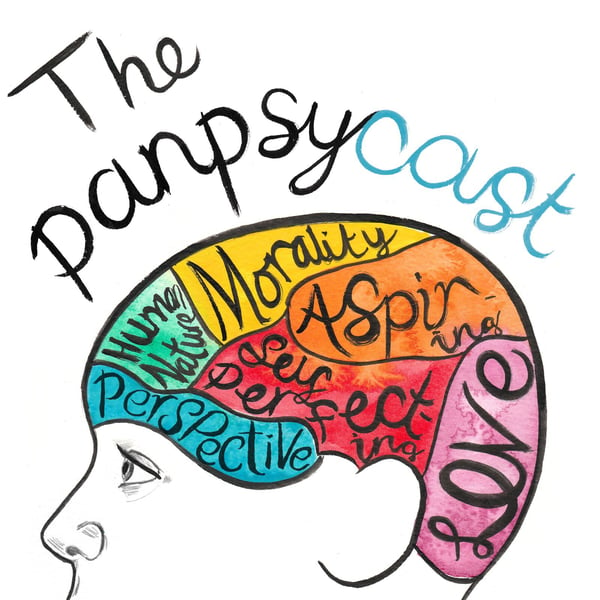Episode 143, ‘The Philosophy of Mental Health’ with Rose Cartwright (Part II - Further Analysis and Discussion)
The Panpsycast Philosophy Podcast
Jack Symes | Andrew Horton, Oliver Marley, and Rose de Castellane
4.8 • 604 Ratings
🗓️ 1 June 2025
⏱️ 31 minutes
🧾️ Download transcript
Summary
We’re living through a mental health crisis. In Europe, use of antidepressant has more than doubled in the past twenty years, and one in five children are now living with a recognised mental health condition. These numbers are striking, and the suffering they reflect personal, and clouded in mystery. But have we always been like this? Or has something shifted – in our politics, our culture, or perhaps in our understanding of what it means to be a person? Is the rise in mental health disorders a product of modern life, or are we simply more willing to talk about them? And what happens when system, designed to help us, ends up making us feel more broken, more stuck, and more alone?
In this episode, we’ll discussing these questions with Rose Cartwright – best-known as the author of Pure, a raw and radical memoir about living with OCD, which went on to become a popular Channel 4 television drama. Today, Rose is a screenwriter on the Netflix show 3 Body Problem, and her latest book, The Maps We Carry, takes a deep dive into the territory of trauma, healing, and the limits of the medical model.
As shall see, Rose’s work explores how our distress is shaped by the stories we tell – and the stories we’re told – about our minds. She asks whether we need new narratives, new frameworks, and even new states of consciousness to understand and transform our inner lives. Drawing on her own experiences – talking therapies, medications, psychedelic journeys, and the spaces in between – Rose invites us to imagine a more expansive approach to mental health. What does that expansive model look like? And is it really necessary? Well – lie back on the couch, take a deep breath… and let’s find out.
Links
Transcript
Click on a timestamp to play from that location
| 0:00.0 | Pan Pan |
| 0:02.0 | Psychist |
| 0:05.0 | Part two, further analyses and discussion. |
| 0:23.5 | In the previous installment, we were discussing the nature of mental health |
| 0:27.1 | and alternative understandings and treatments with Rose Cartwright, |
| 0:30.2 | author of Pure, The Maps We Carry, and Screenplaywriter on the Three Body Problem. |
| 0:35.0 | Go back and listen to it if you haven't listened to it already. |
| 0:38.3 | Central to a lot of your work rows is the importance of story. In fact, you quote our mutual friend, |
| 0:44.5 | clinical psychologist Frank Talis at the beginning of the book where Frank writes, quote, |
| 0:49.2 | narrative brings order to chaos. The universe is less frightening if we have a story. How important do you think |
| 0:55.7 | storytelling is to our sense of self and our mental health? I love that you brought Frank |
| 1:00.7 | into the room. I'm very happy about that. I'm mutual friend Frank. It's really fundamental. |
| 1:05.3 | What is storytelling? Storytelling is like the way we structure experience. Every idea that we have, |
| 1:10.7 | every sense of ourself that we have involves some amount of storytelling, |
| 1:14.5 | a level of our consciousness, perhaps our unconscious. |
| 1:17.8 | Story structure has been a very helpful tool for me in order to bring order to chaos. |
| 1:22.4 | As Frank hinted at in that quote, you know, having mental health problems can be overwhelming and can be |
| 1:28.4 | lonely and can be the task of understanding yourself can feel immensely vast. What was interesting is |
| 1:33.8 | you sort of throw a bit of shade on this movement and philosophy and psychology about meaning finding. |
| 1:39.5 | There's a really good part in the book where you say something like, when you keep in the wolves |
| 1:43.4 | from the door, |
| 1:44.5 | you have no time to think about quests, right? The idea that people always want to find this |
... |
Please login to see the full transcript.
Disclaimer: The podcast and artwork embedded on this page are from Jack Symes | Andrew Horton, Oliver Marley, and Rose de Castellane, and are the property of its owner and not affiliated with or endorsed by Tapesearch.
Generated transcripts are the property of Jack Symes | Andrew Horton, Oliver Marley, and Rose de Castellane and are distributed freely under the Fair Use doctrine. Transcripts generated by Tapesearch are not guaranteed to be accurate.
Copyright © Tapesearch 2025.

